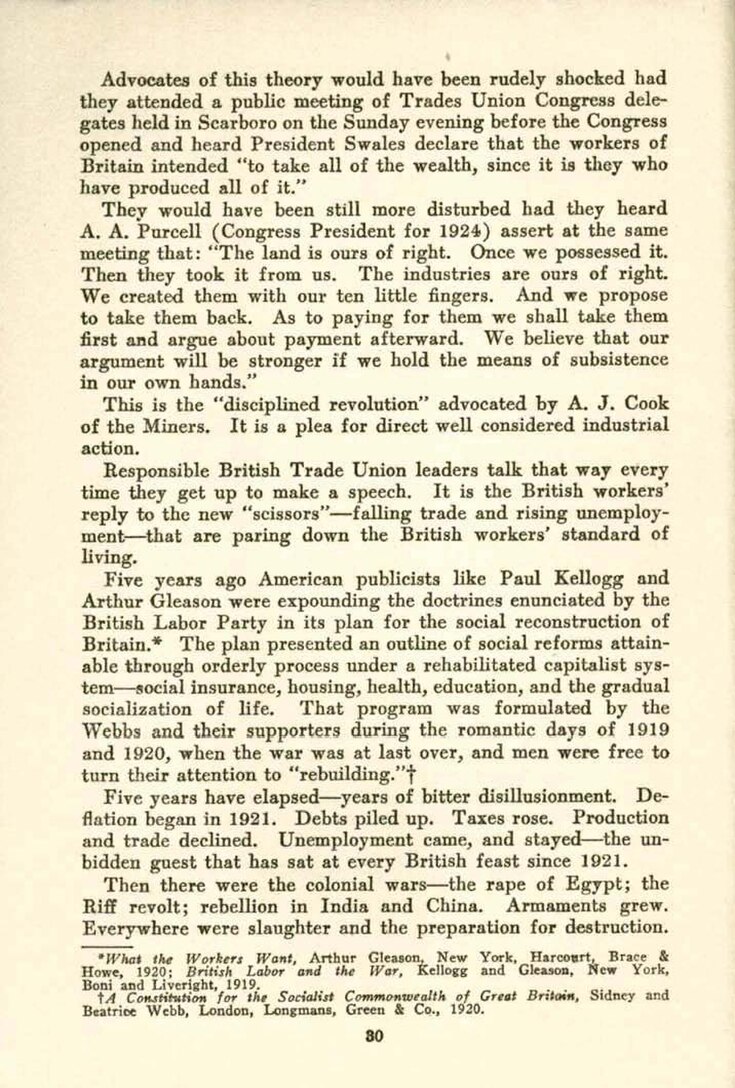Advocates of this theory would have been rudely shocked had they attended a public meeting of Trades Union Congress delegates held in Scarboro on the Sunday evening before the Congress opened and heard President Swales declare that the workers of Britain intended "to take all of the wealth, since it is they who have produced all of it."
They would have been still more disturbed had they heard A. A. Purcell (Congress President for 1924) assert at the same meeting that: "The land is ours of right. Once we possessed it. Then they took it from us. The industries are ours of right. We created them with our ten little fingers. And we propose to take them back. As to paying for them we shall take them first and argue about payment afterward. We believe that our argument will be stronger if we hold the means of subsistence in our own hands."
This is the "disciplined revolution" advocated by A. J. Cook of the Miners. It is a plea for direct well considered industrial action.
Responsible British Trade Union leaders talk that way every time they get up to make a speech. It is the British workers' reply to the new "scissors"—falling trade and rising unemployment—that are paring down the British workers' standard of living.
Five years ago American publicists like Paul Kellogg and Arthur Gleason were expounding the doctrines enunciated by the British Labor Party in its plan for the social reconstruction of Britain.[1] The plan presented an outline of social reforms attainable through orderly process under a rehabilitated capitalist system—social insurance, housing, health, education, and the gradual socialization of life. That program was formulated by the Webbs and their supporters during the romantic days of 1919 and 1920, when the war was at last over, and men were free to turn their attention to "rebuilding."[2]
Five years have elapsed—years of bitter disillusionment. Deflation began in 1921. Debts piled up. Taxes rose. Production and trade declined. Unemployment came, and stayed—the unbidden guest that has sat at every British feast since 1921.
Then there were the colonial wars—the rape of Egypt; the Riff revolt; rebellion in India and China. Armaments grew. Everywhere were slaughter and the preparation for destruction.
{
- ↑ What the Workers Want, Arthur Gleason New York, Harcourt, Brace & Howe, 1920; British Labor and the War, Kellogg and Gleason, New York, Boni, and Liveright, 1919.
- ↑ A Constitution for the Socialist Commonwealth of Great Britain, Sidney and Beatrice Webb, London, Longmans, Green & Co., 1920.
30
